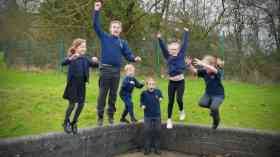In November 2020 I was told I had 6 months left to live and was at risk of sudden death, due to a colloid cyst in my brain.
Supplier Focus
Latest Supplier News
Borg & Overström is a UK manufacturer of premium drinking water solutions. For over 20 years Borg & Overström has developed sustainable, bottle-less, hygienic, drinking water dispensers with the aim to provide exceptional, safe, self-service drinking water into schools, universities, workplaces and communal spaces.

 Sustainability and Environmental Education (SEEd) are delighted to be holding this year’s conference in one of the UK’s most unique cities. Bristol is home to a diverse number of world famous attractions, from spectacular historical structures, such as the Clifton Suspension Bridge and SS Great Britain, to renowned street art from local artist, Banksy. The city has long been a pioneer in the fields of culture, creativity and the environment. Bristol is the first UK city to gain the prestigious European Green Capital Award.
Sustainability and Environmental Education (SEEd) are delighted to be holding this year’s conference in one of the UK’s most unique cities. Bristol is home to a diverse number of world famous attractions, from spectacular historical structures, such as the Clifton Suspension Bridge and SS Great Britain, to renowned street art from local artist, Banksy. The city has long been a pioneer in the fields of culture, creativity and the environment. Bristol is the first UK city to gain the prestigious European Green Capital Award.








